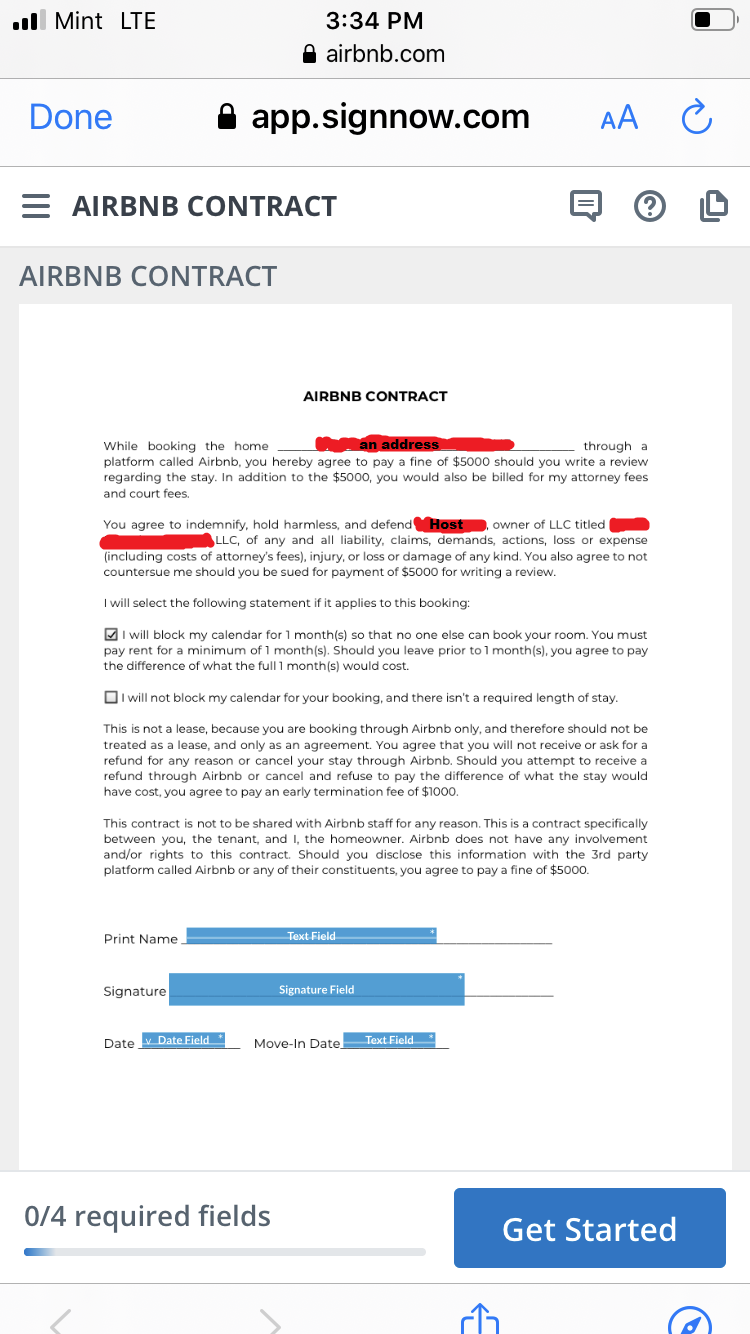I've identified an unusual listing on AirBnB:
https://www.airbnb.com/rooms/50901269?source_impression_id=p3_1627314727_DprmH0dh%2BrK58ACR
Under the section "House rules" is the following paragraph:
I will require you to sign a one page contract when you book. Please ask about the contract before booking, because it may lead to you needing to cancel your stay if you don’t wish to sign it. (I will not be canceling on my end for this reason—you must cancel on your end if you don’t wish to sign it if you booked without inquiring about the contract first. You will not receive a refund unless your booking starts several months after your cancellation.)
(As an aside, my belief is that this mention of a contract is hidden away under the house rules in an attempt to defraud renters. But that is not the point of this post.)
I inquired with the host about the contract and they sent me the following.
In the Airbnb terms of service, available here, section 5.2, is the following sentence:
Any terms, policies or conditions that you include in any supplemental contract with Guests must: (i) be consistent with these Terms, our Policies, and the information provided in your Listing, and (ii) be prominently disclosed in your Listing description.
The terms in the contract provided were not in the listing, apparently violating bullet point (ii). (I assumed that the terms were some version of the House rules.)
Questions:
- Am I correct that this contract is in violation of bullet (ii) of the Terms of Service?
- Suppose a renter booked this listing without seeing the contract. They are then presented the contract and realize that they are unable to sign it. The host refuses to cancel the booking and refuses to allow the renter to check-in without signing the contract. The renter would like to sue for the rent money. If this went to small claims court, would they sue Airbnb or the host?
